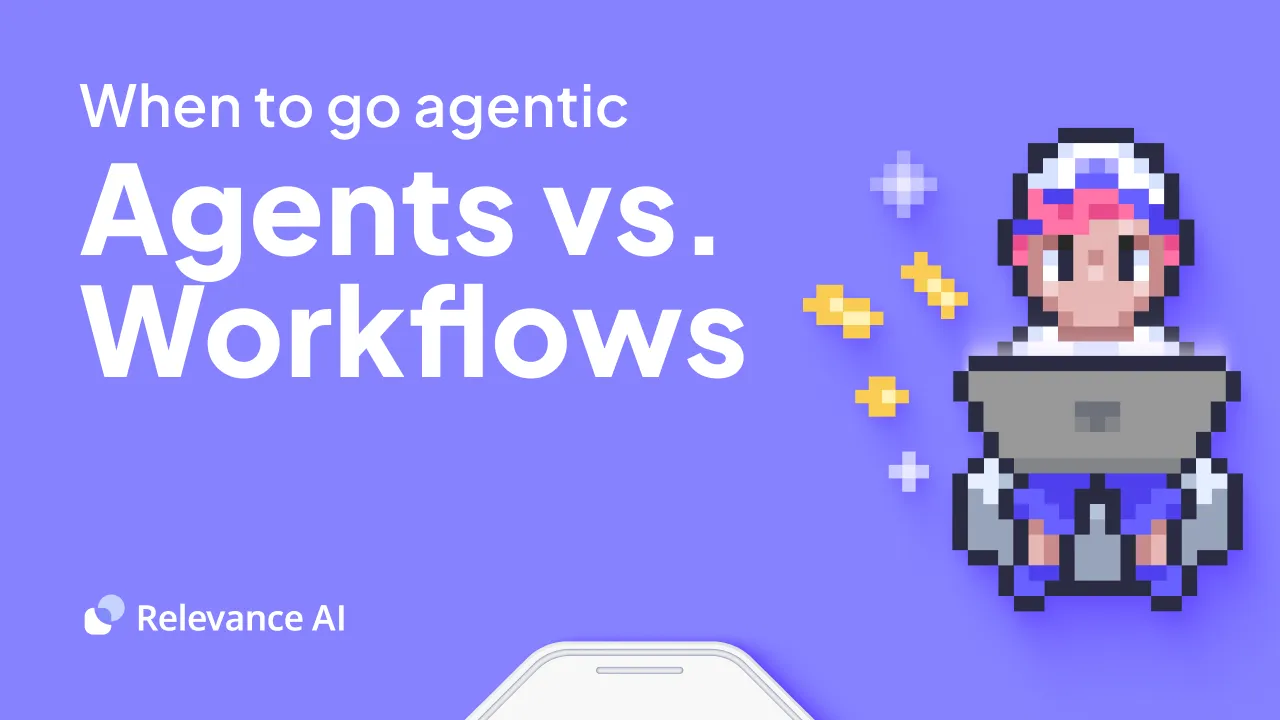Introduction
Metacognitive prompting is a teaching technique that helps students think about their own thinking process. It uses specific questions and exercises to make learners more aware of how they learn, what strategies work best for them, and where they need to improve.
This article will show you how to use metacognitive prompting effectively in your teaching or learning practice. You'll learn the core principles behind it, discover practical implementation strategies, and understand how to overcome common challenges. We'll also explore its applications in modern education and AI.
Ready to get meta about your mind? Let's dive deep into the art of thinking about thinking! 🧠💭
Understanding Metacognitive Prompting
The concept of metacognitive prompting emerged from decades of research in cognitive psychology and educational theory. Flavell's groundbreaking work in the 1970s established the foundation for understanding metacognition, while subsequent researchers expanded upon these initial insights.
Key theoretical frameworks that support metacognitive prompting include:
- Self-Regulated Learning Theory
- Information Processing Theory
- Social Cognitive Theory
- Constructivist Learning Theory
The development of metacognitive prompting strategies has been influenced by several prominent researchers:
Dr. Ann Brown revolutionized our understanding of metacognition in educational settings through her research on comprehension monitoring. Her work demonstrated how explicit instruction in metacognitive strategies could improve student learning outcomes.
Professor Barry Zimmerman's research established the crucial connection between self-regulation and academic achievement. His findings showed that students who regularly engage in metacognitive reflection tend to perform better academically.
Contemporary research has further refined these theoretical foundations. Studies conducted across different educational levels reveal that metacognitive prompting is most effective when it:
- Aligns with specific learning objectives
- Provides structured guidance for reflection
- Encourages active engagement with the material
- Promotes strategic thinking about learning processes
Theoretical Framework and Background
The concept of metacognitive prompting emerged from decades of research in cognitive psychology and educational theory. Flavell's groundbreaking work in the 1970s established the foundation for understanding metacognition, while subsequent researchers expanded upon these initial insights.
Key theoretical frameworks that support metacognitive prompting include:
- Self-Regulated Learning Theory
- Information Processing Theory
- Social Cognitive Theory
- Constructivist Learning Theory
The development of metacognitive prompting strategies has been influenced by several prominent researchers:
Dr. Ann Brown revolutionized our understanding of metacognition in educational settings through her research on comprehension monitoring. Her work demonstrated how explicit instruction in metacognitive strategies could improve student learning outcomes.
Professor Barry Zimmerman's research established the crucial connection between self-regulation and academic achievement. His findings showed that students who regularly engage in metacognitive reflection tend to perform better academically.
Contemporary research has further refined these theoretical foundations. Studies conducted across different educational levels reveal that metacognitive prompting is most effective when it:
- Aligns with specific learning objectives
- Provides structured guidance for reflection
- Encourages active engagement with the material
- Promotes strategic thinking about learning processes
Types and Techniques of Metacognitive Prompting
Metacognitive prompting encompasses various approaches, each designed to enhance different aspects of the learning process. The most effective prompts typically fall into three main categories:
Planning prompts:
- How will you approach this task?
- What strategies might be most effective?
- What resources will you need?
Monitoring prompts:
- Are you making progress toward your goal?
- What difficulties are you encountering?
- How might you overcome these challenges?
Evaluation prompts:
- How effective was your approach?
- What would you do differently next time?
- What have you learned about your learning process?
Educators can implement these prompts through various techniques:
Think-aloud protocols encourage students to verbalize their thought processes while solving problems or completing tasks. This technique makes internal thinking visible and provides opportunities for feedback and reflection.
Learning journals serve as powerful tools for metacognitive development. Students regularly record their learning experiences, challenges, and insights, creating a documented journey of their cognitive growth.
Practical implementation strategies include:
- Embedding reflection questions throughout lessons
- Using guided discussion protocols
- Implementing peer feedback sessions
- Creating structured self-assessment opportunities
Benefits of Metacognitive Prompting
Research consistently demonstrates the substantial impact of metacognitive prompting on learning outcomes. Students who regularly engage with metacognitive prompts show marked improvements in several key areas:
Critical thinking capabilities expand significantly as learners develop the habit of questioning their own thought processes. This enhanced analytical ability extends beyond academic contexts into real-world problem-solving situations.
Self-directed learning skills flourish under the influence of metacognitive prompting. Students become more adept at:
- Identifying their learning needs
- Setting appropriate goals
- Selecting effective learning strategies
- Monitoring their progress
- Adjusting their approach when necessary
Academic performance metrics show consistent improvement when metacognitive prompting is implemented effectively. Studies have documented:
- Higher test scores
- Improved retention of information
- Better problem-solving abilities
- Enhanced conceptual understanding
- Stronger transfer of learning to new contexts
The long-term benefits extend beyond immediate academic gains. Students develop:
Increased self-awareness:
- Better understanding of personal learning preferences
- Recognition of strengths and areas for improvement
- Enhanced ability to adapt learning strategies
Improved self-regulation:
- Greater control over learning processes
- More effective time management
- Better goal-setting abilities
These improvements contribute to lifelong learning capabilities, preparing students for continued success in academic and professional contexts.
Implementation Strategies
Integrating metacognitive prompting effectively into educational settings requires careful planning and execution. Here are some key guidelines for educators looking to leverage the benefits of MP:
Start Small and Build Up
When first implementing MP, begin by introducing just a few targeted prompts into lessons and activities. This allows students and teachers alike to become accustomed to the practice without overhauling the entire learning process. Once the initial prompts are working well, additional prompts can be added incrementally to expand the benefits.
Be Strategic With Prompts
Not all prompts are created equal. Well-designed prompts are clear, open-ended, and target specific metacognitive skills. Prompts should require students to actively reflect rather than give rote responses. Consider when to use prompts before, during, and after learning tasks for maximum impact.
Model Metacognitive Thinking
Teachers should "think aloud" and demonstrate metacognitive thought processes when introducing MP. This gives students an exemplar to follow when responding to prompts. Teachers can also share examples of high-quality metacognitive reflections.
Encourage Elaboration
Simply answering a prompt is not enough - students should be encouraged to explain and expand upon their responses. Elaborative responses indicate deeper metacognitive activity. Allow time and space for this.
Be Patient
Developing metacognitive skills takes time and practice. Students - and teachers - need patience and persistence in order to reap the full benefits. Expect some resistance and initial difficulty.
Evaluate and Refine
Solicit student feedback and assess the impact of prompts. Eliminate ineffective prompts, modify unclear ones, and develop new prompts to target weak areas. MP should evolve based on experience.
Integrate Widely
Look for opportunities to work MP into diverse learning activities and environments. MP can be used in whole class discussions, small groups, individual assignments, and more. Get creative!
With some deliberate effort, MP can become a natural part of the learning process across subjects and grade levels. The payoff in terms of student outcomes makes the investment worthwhile.
Challenges and Considerations
Adopting metacognitive prompting across educational contexts brings both opportunities and challenges. Here are some key considerations:
Student Buy-In
Some students may resist MP if they are unaccustomed to reflective thinking. Communicating the purpose and benefits while allowing some autonomy can help increase acceptance. Starting small and providing examples is key.
Age and Ability Appropriateness
Younger students and those with developmental differences may struggle with MP. Prompts should be crafted accordingly, starting simple and scaffolding up over time.
Avoiding Rote Responses
Students may provide superficial responses if prompts are not crafted carefully. Well-designed prompts require genuine metacognitive work rather than rote replies.
Assessment Difficulties
Evaluating metacognitive activity can be challenging. Rubrics, journals, and discussions can provide insight, but quantitative measurement is difficult. Focus on formative assessment and growth.
Teacher Training Needs
Teachers play a crucial role in effective MP implementation. They may require training on how to design, model, and evaluate prompts. Lack of teacher skill is a barrier.
Finding Class Time
MP requires instructional time, which teachers often feel is in short supply. The benefits merit prioritizing MP, but it may mean tradeoffs with other activities. Integrating across the curriculum can help.
Maintaining Consistency
For MP to become an ingrained habit, it must be used regularly across contexts. Sporadic implementation limits its power. Teachers should coordinate and plan for consistency.
With forethought and educator commitment, these challenges can be overcome to make MP a cornerstone of impactful learning. The rewards make proactively addressing these considerations worthwhile.
Metacognitive Prompting in NLP and LLMs
Metacognitive prompting techniques are now being explored to enhance the capabilities of natural language processing systems and large language models:
Simulating Metacognitive Processes
Researchers have developed MP frameworks that simulate key stages of human metacognitive reasoning. This includes deciphering input, forming an interpretation, evaluating it critically, deciding on a response, and assessing confidence.
Enhancing Contextual Understanding
By simulating metacognitive processes, MP techniques help models better contextualize information and respond in more nuanced, introspective ways. This improves performance on complex NLU tasks.
Promoting Explainable Decisions
MP involves generating explanations for model judgments and decisions. This makes the reasoning process more transparent and explainable - a key concern with black-box AI systems.
Iterative Self-Refinement
The MP process has iterative components where the model critiques and refines its own thinking. This recursive self-correction encourages more careful reasoning and accuracy.
Evaluating Confidence Levels
MP frameworks enable models to evaluate their confidence in responses. This meta-assessment of certainty and uncertainty makes outputs more reliable and trustworthy.
Addressing Limitations
MP offers a promising approach to overcoming inherent limitations of current NLP systems related to reasoning, generalization, and contextualization. It pushes towards more human-like cognition.
By bringing metacognitive dimensions into AI, MP techniques open up an exciting new frontier in developing more intelligent, self-reflective systems that better complement human capabilities.
Future Directions in Metacognitive Research
As a rich interdisciplinary field, metacognitive research has many potential avenues for further exploration:
Neurological Foundations
Advances in neuroscience and imaging provide opportunities to deepen our understanding of the biological mechanisms underlying metacognition. This could uncover new levers for enhancing it.
Metacognitive Interventions
Developing structured interventions, programs, and activities focused on building metacognitive skills is a priority across education, psychology, and related fields.
Cross-Cultural Studies
Comparative research on how metacognition manifests in diverse cultures can highlight universal versus culturally-specific aspects. This has implications for theory and practice.
Technology Applications
There is growing interest in leveraging technology - from biometric sensors to AI - to assess and strengthen human metacognitive abilities in new ways.
Metacognitive Diversity
Individual differences in metacognitive tendencies and aptitudes raise important questions. Can these differences be reliably measured and categorized? What implications do they have for learning and life outcomes?
Lifelong Development
While research has focused on educational contexts, examining metacognition across the lifespan offers critical insights into how it evolves and contributes to lifelong learning and growth.
With deeper interdisciplinary connections and increased recognition of its importance, the science of thinking about thinking will continue enlightening and empowering minds for generations to come.
Conclusion
Metacognitive prompting is a powerful educational tool that helps learners become more aware of and in control of their thinking processes. To start implementing this technique today, try this simple exercise: Before beginning your next important task, take 30 seconds to ask yourself three questions - "What is my goal?", "What challenges might I face?", and "How will I know if I'm successful?" This brief self-reflection can significantly improve your approach and outcomes, whether you're studying for an exam, preparing a presentation, or learning a new skill.
Time to get your brain thinking about your brain thinking about your brain... wait, now I'm stuck in an infinite metacognitive loop! 🧠💭🌀






















